This is a transcript of a keynote introduction Melanie Sisson gave at the Air Force Skunk Works memorial event on December 7, 2022 commemorating the attack on Pearl Harbor.
When World War II ended, the United States had suffered the loss of more than 400,000 civilians and servicemembers. For the United Kingdom that number was 450,000. For Italy it was 460,000, Japan 3 million, Germany 9 million, China 20 million, and for the Soviet Union it was 24 million people dead.1
These people died from starvation, disease, genocide, and combat. This was in a war during which destruction was wrought by flames, artillery, and unguided, unstealthy, aerial bombardment.
Nuclear weapons were responsible for around 200,000 immediate deaths — from the detonation of the only two nuclear bombs in existence on Hiroshima and on Nagasaki, Japan. Together they totaled nearly 50 kilotons of explosive yield.
Today, the United States has hundreds of warplanes and drones that include low observable technologies. In 2020 alone it procured almost 50,000 precision-guided munitions, and there are now nine nuclear-armed states that together have 9,440 immediately usable nuclear warheads that can cause damage on the order of 138,000 Hiroshimas.2
These numbers don’t really matter, of course, there’s nothing in them that we didn’t already know about the capacity of humans to do harm to each other. Indeed, it is a testament to human genius that we have been able to master the physical world in this way, to control matter and energy and use it to fulfill our will. It is also an injury to our humanity that we have so consistently and assiduously devoted our genius to this task.
The most common explanation for why we do so is that it is the best, and indeed the only, way to ensure that the people of the United States are safe from external attack and able to live in ways that reflect our principles and our values, to live in ways that are expressions of our national identity. We use military technology to convince others not to behave in ways that make it impossible for us to be safe and prosperous and free, and we apply it in war only when necessary.
This framework for justifying why we need military technology and when we will use it to do harm is premised upon an understanding of war as the outcome of a process in which actors make cost-benefit calculations in order to take only calculated risks. In which the weighing and measuring of capabilities is done with at least some level of accuracy, and the expected value of aggression is discounted by the probability of failure — which also is assessed with some reasonable degree of accuracy.
It is a framework built on the belief that actors do the math and see that their military might comes in well short of the United States and won’t take the gamble of picking a fight.
This framework is intellectually comfortable, it comports well with the kind of rationality in which the majority of us working within the national security community of the United States, and indeed of the west more broadly, are trained.
The difficulty is that this framework doesn’t fit well with history. Modern wars have happened even where one side, in the words of one analyst from the characteristically unsentimental RAND Corporation, knowingly “faces certain military suicide” — as Japan did in 1941.3
It also comports poorly with human behavior leading into and during war. Modern social science reminds us that all decisionmakers are subject to irrationality and are in other ways fallible: measurements can be misinterpreted, behaviors misconstrued, and unconscious biases and pathologies hard to recognize and resist.4
Ancient history tells us the same thing. This is especially evident in the work of Thucydides, the great chronicler of the decades-long Peloponnesian war between great power rivals Athens and Sparta. Thucydides’ writing from more than 2,500 years ago has for a long time been a fixture of political science and international relations syllabi, but it surged into relevance for policymakers in 2017, and remains in regular use in debates about national security today.5
This isn’t because national security policymakers brushed off those syllabi and fell in love with Ancient Greece all over again, it is because since 1979 China doubled its gross domestic product every eight years, became the world’s largest trading nation and one of the world’s largest net creditors, and elevated an estimated 800 million people out of poverty.6
As a general matter, a nation’s rise — its economic development, and certainly increases in the quality of life of its citizens — is all well and good. But paired with China’s military advances, it has brought renewed attention to the global distribution of power. To which nation it is that wields relatively more diplomatic influence, economic potential, and military might, and by relatively how much.
Of special interest is the extent to which that distribution suggests the possibility of a coming power transition, of the possibility that China’s rise is on a steep enough trajectory that it might soon match or even exceed the aggregate power of the United States.
This outcome of a state’s rise is another thing altogether, because, as Thucydides describes it having done all those centuries ago, “It was the rise of Athens and the fear that this instilled in Sparta that made war inevitable”.
History is interpreted not in the context in which it was written, but rather the one within which it is read. How history is understood reflects the features and the pressures that are present at the time of its use.
It is therefore unsurprising that what has proved galvanizing about Thucydides’ writings for the contemporary policy community is his observation about the correlation between the rise of Athens, and the outcome of war, “It was the rise of Athens…that made war inevitable”.
The focus on these clauses suggests there is a linear relationship — almost a deterministic one — between an increase in China’s power and the likelihood of war. This encourages us to pay feverish attention to indicators of China’s economic growth and military gains, and to compare them against our own.
Because, after all, if we see China as the rising power in the analogy, with something to gain, then we are the standing power, with something to lose.
For the last thirty years it has been our interests and our preferences that are reflected in and privileged by the structure of the international system — by the institutions, norms, and standards of behavior that shape and constrain the activities of others.
The rise of China thus is a problem to be solved if we believe that the way in which China would prefer for the international system to operate runs so counter to ours that it threatens our physical security and our ability to be economically productive. Or if we believe that China’s preferences about the rules and norms of international politics would require us to conform to values that are so fundamentally incompatible with our national identity that they demand that we deny China from exercising international leadership to any greater extent than it does already.
The calculation for Sparta was much the same. The political system it inhabited prior to the Peloponnesian war worked in its favor. Sparta maintained a robust constellation of alliances — and these allies paid tributes — it had trade arrangements in place that assured its access to ports and land transit routes, and norms of conduct were largely consistent with its preferences.
When it became clear that Athenian power had grown, Sparta concluded that if that growth were to continue then Athens would be capable either of convincing Sparta’s allies to defect or simply of taking them by force.7 If Athens succeeded in doing so, then Sparta would lose its favored position in transit, trade, and tributes.
Sparta decided to defend against these outcomes by seeking to retain its hold on its allies by making allegations that Athens was violating truces and transgressing on others’ autonomy. These disputes were real, and additive. Athens offered to address them through arbitration. Sparta declined and ultimately initiated hostilities instead.8
This same progression of logic drives concern about China’s rise today. If it is not possible to countenance the inclusion of China’s preferences within a system led by the United States, or if we believe that being able to live within our borders in ways that are consistent with our values will not be possible if China assumes the leadership role that we’ve been occupying — as global steward, standard-setter, and enforcer of expectations – then we might well believe that going to war with China is necessary.
Like all logic, this outcome represents one branch of a larger tree — it is one derivation from a sequence of if-then clauses that describe the implications of the presence or absence of certain conditions, and their interaction. Thucydides identified the rise of Athens as one such condition — but not the only one. The other condition was “the fear that this instilled in Sparta”.
Thucydides took the condition of fear quite seriously. It is one of what he calls “the three strongest motives, fear, honor, and interest”. Its inclusion in his recounting of the Peloponnesian War thus is meaningful. What moved these great powers to war, what made war inevitable? — not “the rise of Athens”, but rather the rise of Athens conditioned by “the fear that this instilled in Sparta”.
If we are going to take Thucydides’ history seriously, and certainly if we are going to use his recounting of the past to inform our policies in the present, then we cannot discount this clause and preference the others. Doing so not only is intellectually dishonest, but it biases our choices.
If Thucydides’ observation were that “it was the rise of Athens”, unconditioned, “…that made war inevitable”, then we, like the Spartans, might reasonably argue that the best policies to implement will be those that seek to arrest China’s rise — to slow its pace, change its trajectory, reverse its course.
We would then engage in a trade war to hinder the productivity of China’s economy, we would impose export controls designed to suppress the innovation of China’s technology sector, and we would orient our national defense strategies around the goal of defeating China in a major war.
We would accept the risk that these policies might not work fast enough, or might not work at all, or might produce a defensive and violent reaction from China — which they might, after all, if China were to become convinced that the United States is hostile to how the Chinese people understand their security, their prosperity, their national identity.
We would take these risks because if it is the rise that causes the war then there is no recourse other than to try to stop the rise and to prepare for the war.
If, however, we attend to Thucydides’ other condition — “and the fear this instilled in Sparta” — then we will take a different approach. We will clarify which interests are truly vital – which is to say essential, indispensable, non-substitutable — and we will invest in policies, practices, and technologies that reduce our fears that China can damage or deny them. This will include engaging in robust diplomacy to develop mutual empathy and as much understanding of intent as possible;
- it will include enhancing domestic resilience to shocks like pandemics, climate events, attempts at economic coercion, and cyber attacks;
- it will include intentional diversification, but not decoupling, of mutually beneficial trade relationships and supply chains, along with an attention to maintaining our own sources of leverage, our own ability to engage in economic coercion;
- it will include improvements to our domestic sources of innovation and productivity — infrastructure, education, health care, food security;
- and it will include investment in national security technologies that provide more visibility, more of the time, in the operating environments that are directly implicated in the defense of our vital national interests.
For the Department of Defense — for you, the Skunks — this work requires that we apply the genius of our technologists, engineers, designers, planners, and strategists to generate information that decreases our fear.
Not our fear of strategic surprise — our nuclear arsenal and our conventional forces are both robust and ready deterrents, and we have in place well-established mechanisms for recognizing and responding to a large-scale use of force by any actor on the planet.
We can’t say the same about our fears of lesser forms of aggression, of adversarial operations that threaten regional interests and that erode the standards and expectations of behavior that reflect and perpetuate U.S. leadership.
To worry about China’s pressures on the international order that privileges our interests is to worry that we are losing our ability to convince others to do what we prefer that they do, and not to do what we prefer that they don’t.
It is to worry not about a bolt from the blue, but rather about death from a thousand cuts — it is to recognize that the accumulation of small violations, over time, might eventually tip the balance, might ultimately add up to a systemic change to the standards and expectations that guide international behavior.
This is a reasonable fear. We have for too long been inattentive to the strategic importance of these seemingly non-strategic challenges, and so we have neglected to think seriously and creatively about how to anticipate them, and about how best to respond to them.
The technologies that we have today enable us to capture, process, and analyze more data than ever before about what’s happening in our surroundings. This equips us to measure more, and to measure it better.
We are more capable today than at any other time in our history of distinguishing changes away from baseline that constitute a meaningful signal from changes that are just standard noise — we are better able, faster, to anticipate danger.
To retain leadership, however, we will also have to get better at responding to those dangers, and at doing so in ways that don’t unnecessarily increase the risk of war.
This will require new and different modes of thinking. It will require a willingness to acknowledge that those we are seeking to influence don’t share our worldview. That they have different perspectives and different perceptions, that they might not interpret our actions in the way that we intend.
It will require us to accept that we forget or neglect or reject this reality at our own peril, and to have the wisdom and the discipline not to do what makes sense to us, but rather to try to do what is understandable to them.
The imperative today is to do everything that we can – everything that good theory, good concepts, and good technology make possible — to reduce the distance between the message sent and the message received.
We’ve done this before. The United States and the Soviet Union had decades of focused and intentional learning about each other, achieved through intensive surveillance, careful experimentation, unbiased analysis, and direct military exchanges that rendered a reasonably accurate appreciation of each other’s values, goals, priorities, and red-lines. This sort of mutual familiarity has never existed between the United States and China. This makes effective deterrence difficult, and it increases the likelihood that China and the United States will inadvertently alarm each other. That China will press a limit, touch a U.S. nerve and that we will respond without having a good basis for understanding either Beijing’s intent or how best to influence its next decision. It increases the likelihood that when we do respond, when we do seek to influence what China does next, the result is message confusion, where our intent is either missed entirely or misunderstood, and perhaps in highly provocative, dangerous ways.
We need to give China every opportunity not to incite our fear, and we need to take every opportunity not to incite theirs.
When it becomes necessary to deter actively, if there are indications and warnings that China might transgress on a vital U.S. interest, then we need to be prepared to communicate our objections, our demands, and what it is that we will do in the event that China doesn’t comply.
Making those communications effective will depend upon how well we understand the audience — on how much we know about how Beijing interprets our actions, and on how well we identify not what we think it is rational for China to care about, but rather what it is that China actually does care about.
We can never have perfect knowledge of course, but we can know more than we do today. We can use technology to experiment.
We can sense at scale, we can apply automation that uses advanced statistical analyses to identify anomalies, and we can design creative concepts and tactics to test and to probe and to correlate our activities with China’s responses.
This kind of technology-driven empiricism is what will make us better at detecting danger and selecting the responses to China’s actions that maximize our likelihood of achieving our objectives without also maximizing the risk of war.
Being attentive to China’s progress — its capabilities, its advances and ambitions — is necessary, but fear is a bad basis for policy.
Fear of losing something is especially pernicious. It makes us more impulsive and risk-acceptant — and not theoretically: these are responses that neuroscience research suggests are hard-wired into the human brain.9 They also are reflexes that will be especially dangerous over the next decade, as the United States and China continue their mutual watchfulness, continue to operate under conditions of incomplete information and mistrust, and continue to contest each other’s influence.
Fear, however, can be managed, if we are willing to be introspective and unsparingly honest. Indeed, properly remembering our past commits us to examining our motives to discern whether we are being driven by fear, or by honor, or by interest.
If we use that remembrance well, then we will set about finding ways to constrain our impulses for honor, and we will devote our genius not only to pursuing our interests but also to controlling our fear. Not to do so is to fail to use our genius to ensure that we don’t ever mistake fear for necessity and start a war, intentionally or otherwise, that could be our last.
-
Footnotes
- The National WWII Museum, “Research Starters: Worldwide Deaths in World War II”, accessed 12/2022: https://www.nationalww2museum.org/students-teachers/student-resources/research-starters/research-starters-worldwide-deaths-world-war.
- “Defense Primer: U.S. Precision-Guided Munitions”, Congressional Research Service, November 15, 2022: https://crsreports.congress.gov/product/pdf/IF/IF11353; Nuclear Weapons Ban Monitor, accessed 12/2022: https://banmonitor.org/profiles.
- Brown, Michael E., “Deterrence Failures and Deterrence Strategies”, RAND Corporation, March, 1977: https://www.rand.org/content/dam/rand/pubs/papers/2008/P5842.pdf.
- Jervis, Robert, “Hypotheses on Misperception”, World Politics, Vol. 20 (April 1968), pp. 454-79; Jervis, Robert, “War and Misperception” in The Origin and Prevention of Major Wars, eds., Robert Rotberg and Theodore Rabb, pp. 101-126; Van Evera, Stephen, “Offense, Defense, and the Causes of War”, International Security, (Vol. 22), Spring 1998, pp. 5-43
- Crowley, Michael, “Why the White House is Reading Greek History”, Politico, June 21, 2017: https://www.politico.com/magazine/story/2017/06/21/why-the-white-house-is-reading-greek-history-215287/.
- “China’s Economic Rise: History, Trends, Challenges, and Implications for the United States”, Congressional Research Service, Jun 25, 2019: https://www.everycrsreport.com/reports/RL33534.html#_Toc12530838; Dollar, David, “China as a Global Investor”, Order from Chaos, Brookings Institution, May 2016: https://www.brookings.edu/wp-content/uploads/2016/07/China-as-a-Global-Investor_Asia-Working-Paper-4-2.pdf.
- Eckstein, Arthur M., “Thucydides, the outbreak of the Peloponnesian War, and the Foundation of International Systems Theory”, The International History Review, Dec., 2003, Vol. 25, No. 4, pp. 757-774.
- Huxley, G.L., “Thucydides on the Growth of Athenian Power”, Proceedings of the Royal Irish Academy: Archaeology, Culture, History, Literature, 1983, Vol. 83C, pp. 191-204.
- Glimcher, Paul W. and Ernst Fehr, Neuroeconomics: Decision making and the brain, (Elsevier: London), 2014.
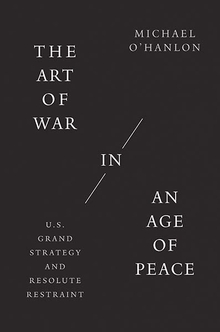
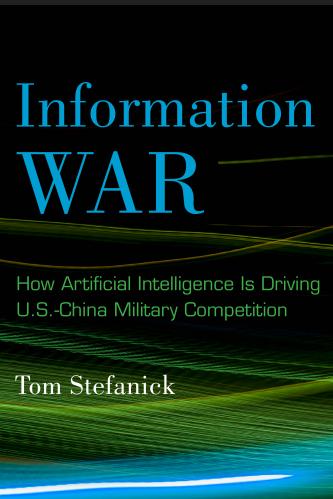
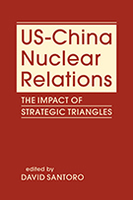

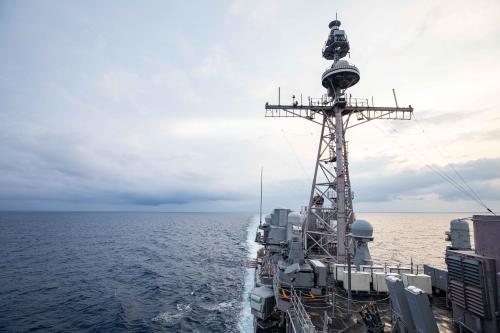
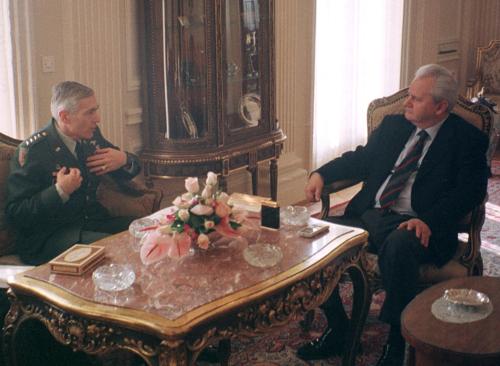




Commentary
Avoiding traps and preventing war: History, technology, and fear
December 12, 2022